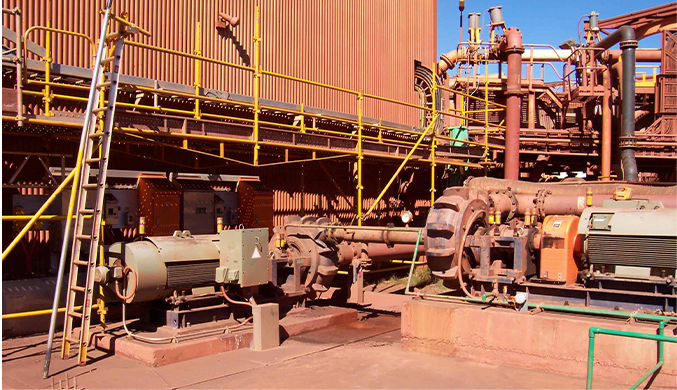Javanese
- Afrikaans
- Albanian
- Amharic
- Arabic
- Armenian
- Azerbaijani
- Basque
- Belarusian
- Bengali
- Bosnian
- Bulgarian
- Catalan
- Cebuano
- Corsican
- Croatian
- Czech
- Danish
- Dutch
- English
- Esperanto
- Estonian
- Finnish
- French
- Frisian
- Galician
- Georgian
- German
- Greek
- Gujarati
- Haitian Creole
- hausa
- hawaiian
- Hebrew
- Hindi
- Miao
- Hungarian
- Icelandic
- igbo
- Indonesian
- irish
- Italian
- Japanese
- Javanese
- Kannada
- kazakh
- Khmer
- Rwandese
- Korean
- Kurdish
- Kyrgyz
- Lao
- Latin
- Latvian
- Lithuanian
- Luxembourgish
- Macedonian
- Malgashi
- Malay
- Malayalam
- Maltese
- Maori
- Marathi
- Mongolian
- Myanmar
- Nepali
- Norwegian
- Norwegian
- Occitan
- Pashto
- Persian
- Polish
- Portuguese
- Punjabi
- Romanian
- Russian
- Samoan
- Scottish Gaelic
- Serbian
- Sesotho
- Shona
- Sindhi
- Sinhala
- Slovak
- Slovenian
- Somali
- Spanish
- Sundanese
- Swahili
- Swedish
- Tagalog
- Tajik
- Tamil
- Tatar
- Telugu
- Thai
- Turkish
- Turkmen
- Ukrainian
- Urdu
- Uighur
- Uzbek
- Vietnamese
- Welsh
- Bantu
- Yiddish
- Yoruba
- Zulu
Telephone: +86 13120555503
Email: frank@cypump.com
Sep . 23, 2024 05:35 Back to list
pipeline pump station
The Importance of Pipeline Pump Stations in Modern Infrastructure
Pipeline pump stations play a crucial role in the transportation of fluids over considerable distances, ensuring that essential resources such as water, oil, and natural gas reach their intended destinations efficiently and safely. These stations serve as intermediaries in a pipeline network, utilizing pumps to increase the pressure and propel fluids through pipelines. Their significance cannot be overstated, as they are integral to the functioning of modern infrastructure.
At the core of a pump station are its pumps, which can be classified into various types such as centrifugal pumps, positive displacement pumps, and submersible pumps. Each type is chosen based on the fluid's properties and the specific requirements of the pipeline system. The selection of the appropriate pump is critical, as it influences the energy efficiency and reliability of the entire operation. Additionally, the design of the station must accommodate not only the pumps but also other components such as motors, control systems, and valves.
Operational efficiency is a prime concern for pipeline pump stations. They are generally strategically located to minimize energy consumption and maximize effective fluid transfer. The layout is designed to facilitate easy maintenance and operation by technicians, ensuring that downtime is minimized. By employing advanced technologies such as automated control systems and real-time monitoring, pump stations can optimize their performance. These systems provide critical data that help in predictive maintenance, allowing operators to address potential issues before they escalate into serious problems.
pipeline pump station

Moreover, pipeline pump stations are engineered with safety and environmental considerations in mind. Given the volatile nature of some fluids, particularly in the oil and gas sector, strict safety protocols are employed. These include leak detection systems, emergency shut-off mechanisms, and rigorous training for personnel. Environmental safeguards are also in place to prevent spills and minimize any ecological impact. Compliance with regulations set forth by governmental and environmental agencies is essential to ensure sustainable operations.
In addition to their operational functions, pipeline pump stations contribute to economic development. They facilitate the efficient movement of resources, which is vital for industries, agriculture, and urban areas. For instance, water pump stations ensure that communities have access to clean and safe drinking water, while oil and gas pump stations support energy needs. By enhancing the reliability of supply chains, these stations indirectly foster job creation and economic stability.
In conclusion, pipeline pump stations are a backbone of infrastructure across the globe. Their ability to transport fluids efficiently is vital for economic growth, community well-being, and environmental protection. As technology advances and the demand for resources increases, the role of these stations will become ever more critical. In future developments, innovations in pump technology, energy efficiency, and safety measures will ensure that pipeline pump stations continue to meet the challenges of a rapidly changing world. The continued investment and focus on these vital components of infrastructure will determine the sustainability and resilience of our energy and water supply systems.
-
ISG Series Vertical Pipeline Pump - Chi Yuan Pumps Co., LTD.|High Efficiency, Energy Saving, Low Noise
NewsJul.30,2025
-
ISG Series Vertical Pipeline Pump- Chi Yuan Pumps|High Efficiency&Low Noise
NewsJul.30,2025
-
ISG Series Vertical Pipeline Pump-Chi Yuan Pumps Co., LTD.|High Efficiency&Energy Conservation
NewsJul.30,2025
-
ISG Series Vertical Pipeline Pump - Chi Yuan Pumps Co., LTD.|Advanced Hydraulic Design&Energy-Efficient Solutions
NewsJul.30,2025
-
ISG Series Vertical Pipeline Pump - Chi Yuan Pumps Co., LTD.
NewsJul.30,2025
-
ISG Series Vertical Pipeline Pump - Chi Yuan Pumps Co., LTD.|energy-efficient fluid handling&industrial durability
NewsJul.30,2025










